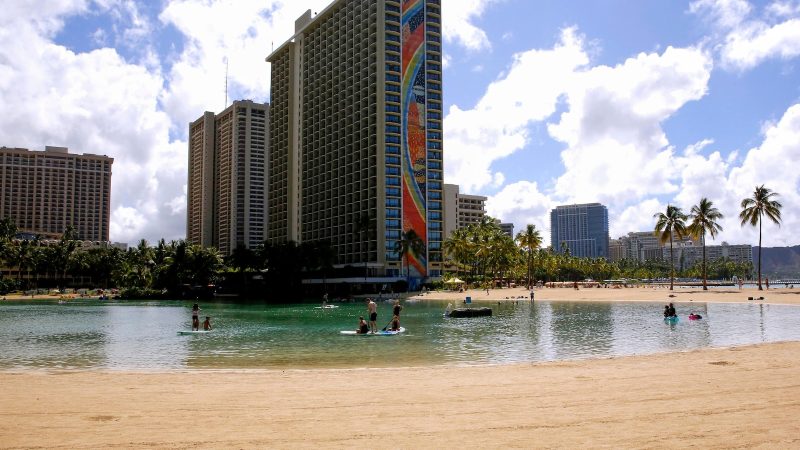
Hawaii has taken a significant step towards combating climate change and protecting its natural beauty by passing a groundbreaking bill that increases the state’s lodging tax. This innovative legislation, which is the first of its kind in the nation, will add a 0.75% levy to the existing hotel room tax, along with a new 11% tax on cruise ship bills. These measures are projected to generate nearly $100 million annually, a substantial sum dedicated to crucial environmental projects.
The funds will be used to address pressing environmental challenges facing the islands. This includes replenishing sand on eroding Waikiki beaches, a vital tourist attraction; promoting the use of hurricane clips to strengthen homes against powerful storms; and clearing flammable invasive grasses, a critical step in wildfire prevention after the devastating Lahaina fire of 2023. Governor Josh Green, a strong supporter of the bill, is confident that the increased tax will be barely noticeable to visitors, while significantly benefiting the environment.
While the increase brings the total tax on short-term rentals to 18.712%, a figure among the highest in the nation, Governor Green believes the investment in environmental protection will ultimately attract more long-term visitors. He envisions a future where travelers are drawn to Hawaii not only for its beauty, but also for its commitment to sustainability. The Governor emphasized that only the revenue generated by the 0.75% increase and the cruise ship tax will be specifically allocated to environmental and climate change initiatives, ensuring transparency and accountability.
However, the increase has not been without its concerns. Some worry that the higher cost might deter tourists, potentially driving visitors to other destinations. Others question whether the state will effectively communicate how the funds are being used to maintain public trust and encourage continued tourism. The initial proposal for a larger tax increase was scaled back in response to these concerns, demonstrating a balance between environmental needs and economic realities. The Maui Hotel and Lodging Association, while acknowledging the importance of the cause, expressed uncertainty about the long-term impact on visitor numbers.
Despite these concerns, the bill passed with wide margins in both the House and Senate, highlighting a strong bipartisan commitment to preserving Hawaii’s unique environment. The success of this initiative will depend heavily on the state’s ability to demonstrate transparent and effective use of the funds, ensuring that the investment in protecting Hawaii’s paradise is both visible and impactful for years to come.










